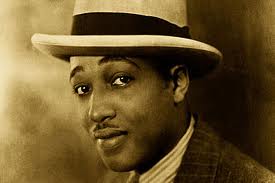I’ve spent the past week on Florida’s Sanibel Island working on Black Beauty: A Life of Duke Ellington. Yesterday morning I finished writing the second chapter, in which I describe the first eighteen years of Ellington’s life. Here are the last two paragraphs. I hope you like them!
* * *
 The patterns of Duke Ellington’s life and personality were now firmly set, and they looked quite a bit like the complicated shape of life on U Street, the neighborhood in Washington, D.C., where he grew up. The hours he had spent rubbing shoulders with ragtime pianists, Pullman porters, petty thieves, and card sharps in Frank Holliday’s poolroom had introduced him to a way of living far removed from the middle-class world into which he had been born. To the end of his life he recalled with undiminished relish the lessons he learned there: “Interns used to come in, who could cure colds. And handwriting experts who would enjoy copying somebody’s signature on a check, go out and cash it, and bring back the money to show the cats in the poolroom what artists they were. They didn’t need the money. They did it for the kicks. There were also a couple of pickpockets around, so smooth that when they went to New York they were not allowed in the subway. At heart, they were all great artists.”
The patterns of Duke Ellington’s life and personality were now firmly set, and they looked quite a bit like the complicated shape of life on U Street, the neighborhood in Washington, D.C., where he grew up. The hours he had spent rubbing shoulders with ragtime pianists, Pullman porters, petty thieves, and card sharps in Frank Holliday’s poolroom had introduced him to a way of living far removed from the middle-class world into which he had been born. To the end of his life he recalled with undiminished relish the lessons he learned there: “Interns used to come in, who could cure colds. And handwriting experts who would enjoy copying somebody’s signature on a check, go out and cash it, and bring back the money to show the cats in the poolroom what artists they were. They didn’t need the money. They did it for the kicks. There were also a couple of pickpockets around, so smooth that when they went to New York they were not allowed in the subway. At heart, they were all great artists.”
Yet Ellington would never turn his back on the other lessons in life that he had learned from J.E., Daisy, and their genteel neighbors. He regarded them as equally valid, just as he learned as much from listening to “the schooled musicians who had been to the conservatory” as he did from the untrained pianists whose homemade methods he emulated: “Everybody seemed to get something out of the other’s playing–the ear cats loved what the schooled guys did, and the schooled guys, with fascination, would try what the ear cats were doing.” It did not occur to him that his own elegant carriage was inconsistent with his racial identity, any more than that the authenticity of his music might somehow be compromised by its urbanity. That, he knew, bespoke a constrictingly narrow notion of “blackness.” Throughout his life he delighted in pointing out that Harlem “has always had more churches than cabarets,” and the composer of Black, Brown and Beige needed no one to remind him that black people came in all shades. “Once I asked him what he considered a typical Negro piece among his compositions,” a white friend recalled. “He paused a moment before he came up with ‘In a Sentimental Mood.’ I protested a bit and said I thought that was a very sophisticated white kind of song and people were usually surprised when they learned it was by him. ‘Ah,’ he said, ‘that’s because you don’t know what it’s like to be a Negro.'”
Never did he harbor the slightest doubt of his own knowledge of what it was like to be a Negro, or his ability to turn that knowledge into music that gave voice to his people’s anguish–and aspiration.
Archives for January 10, 2011
TT: Just because
Miles Davis and the Gil Evans Orchestra play Dave Brubeck’s “The Duke”:
TT: Almanac
“Warming up before a concert is like doing breathing exercises before dying.”
Gregor Piatigorsky (quoted in Leon Fleisher and Anne Midgette, My Nine Lives: A Memoir of Many Careers in Music)
